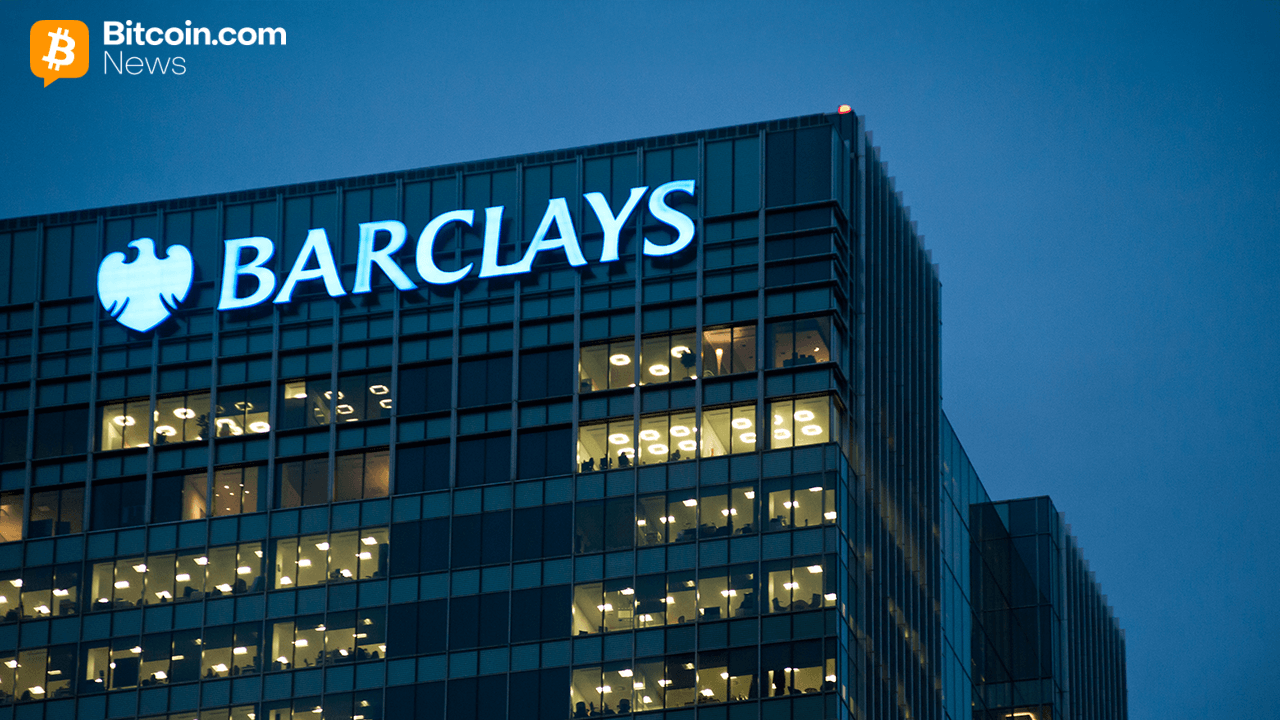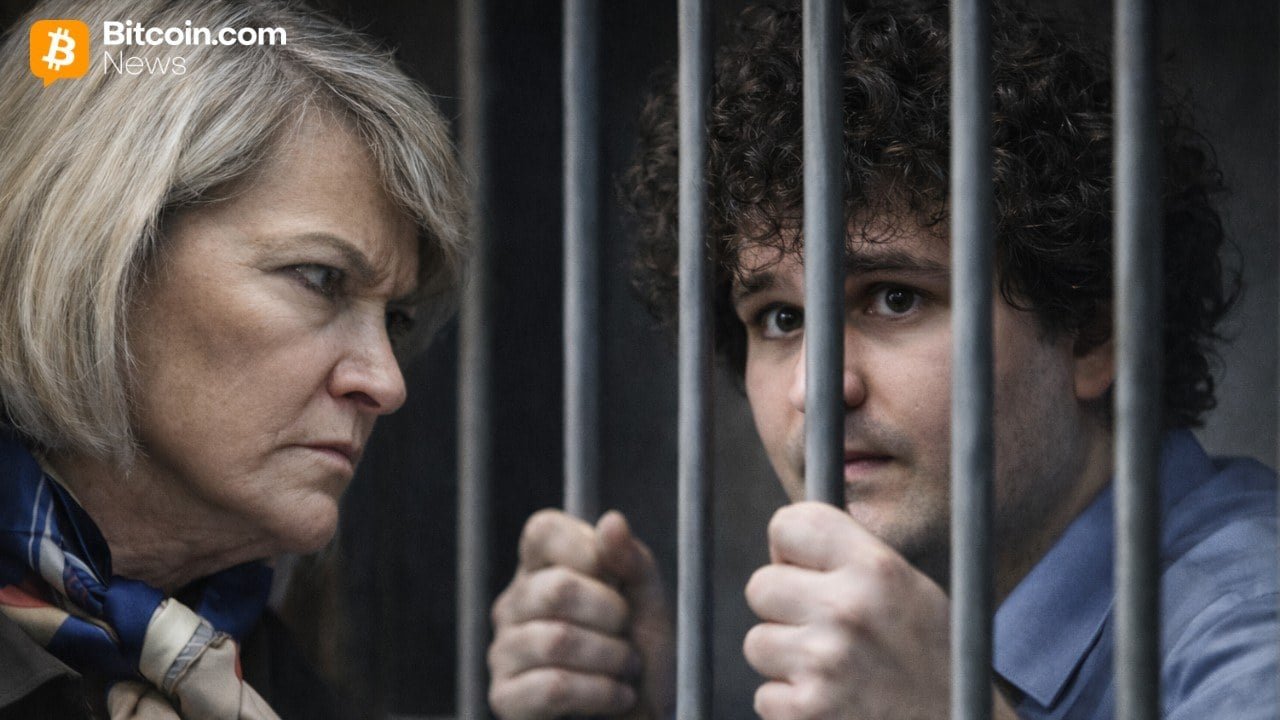Report: Barclays Joins Global Banks Building Blockchain Payment Systems
NFTs : Exploring Music Industry’s Big Shift
(Originally posted on : NFTICALLY )
Has music played an integral role in providing entertainment throughout centuries? From recordings and cassette tapes to CDs and mp3 files, has the music industry evolved over time? But what does the future hold? Can non-fungible tokens (NFTs) and blockchain technologies transform the music industry?
NFTs are revolutionizing the music industry by introducing new possibilities. These tokens bring trust, transparency, and creativity to the table, allowing artists to showcase and sell their work with confidence. Through NFT artists can establish stronger relationships with their fans and explore innovative ways to monetize their creations.
Shall we delve into the fascinating world of NFTs in music?
Introduction of NFTs in the Music Industry
NFTs have brought a revolutionary change to the music industry. These unique digital assets utilize blockchain technology to securely store and transfer ownership rights. Unlike conventional assets, NFTs cannot be replicated or divided, making them truly one-of-a-kind. They have the ability to represent various items like artwork, music, tickets, games, and even virtual real estate.
Musicians are increasingly adopting NFTs as a means to monetize their work independently, bypassing the need for traditional platforms like record labels. By converting their music files, albums, and music videos into digital assets, musicians can offer them to their fans or collectors in exchange for financial support.
The NFT market witnessed explosive growth in 2021, attracting the attention of renowned celebrities and investors. This trend empowers artists with greater control over their creations, enabling them to produce limited-edition versions. Additionally, NFTs open fresh avenues for musicians to monetize their work directly, bypassing traditional music distribution channels.
How are NFTs changing the music industry?
The music industry is undergoing a significant transformation due to the emergence of non-fungible tokens (NFTs). These unique digital tokens empower creators by granting them greater control and enhanced rewards for their artistic works. By utilizing immutable records of ownership on the blockchain, musicians can directly engage with their fans and receive royalties from every sale, bypassing the need for intermediaries or traditional platforms.
The integration of blockchain technology has disrupted the conventional value chain in the music industry, shifting the balance of power back to the artists themselves. This newfound control allows them to set their own pricing, promotion strategies, and distribution methods. Furthermore, NFT have played a role in mitigating copyright infringement by making it more challenging to reproduce unauthorized copies of musical assets.
Through the use of digital tokens, artists can incentivize their fan base with exclusive content and unique experiences, such as virtual meet-ups. Additionally, implementing smart contracts on the blockchain ensures that creators continue to receive fair compensation for their work, even when NFTs are resold in various online or offline marketplaces. As a result, NFTs are driving a profound transformation across the entire music industry.
Exploring Varieties of Music NFTs
Non-fungible tokens offer music lovers a unique and secure way to own their favourite music digitally, all while showcasing their admiration for cherished artists and labels. Let’s now delve into the different types of these digital assets that exist in the realm of music.
1. Music-Inspired Digital Artwork as NFT
With advancing technology, digital artwork inspired by music has gained popularity among collectors. These NFTs encompass album covers, concert posters, and other visuals, fetching high prices in the market. Artists can also use this medium to create custom visuals for songs or transform albums into interactive experiences.
2. Ticket NFT for Enhanced Concert Experiences
Ticket NFTs offer a secure solution to combat ticket counterfeiting. By distributing tickets directly to fans through NFTs, musicians and promoters can better regulate event entry. Moreover, ticket NFTs provide exclusive perks like discounts on food and drinks during the event, as well as access to special meet-ups with artists.
3. Songs and Music Albums as NFT
Owning digital versions of favourite songs, EPs, and albums through non-fungible tokens allows fans to support their cherished artists while enjoying their music. It also enables artists to monetize their releases directly, without relying on intermediaries or traditional royalty collection methods.
4. Autograph NFT: Cherished Collectibles for Music Enthusiasts
Autograph NFTs offer fans a distinct form of collectibles, granting ownership of tangible memorabilia associated with their beloved artists. These tokens serve as proof of ownership and hold immense value for passionate music enthusiasts. They not only facilitate connections with artists but also present the potential for a more valuable asset that can be resold at higher prices. Each autograph token is unique and irreplaceable, providing owners with an invaluable piece of music history.
5. Video NFT: Revolutionizing Digital Content Ownership
Video NFTs introduce a groundbreaking approach to owning and representing digital content. They enable capturing and reselling cherished moments at desired prices. As music streaming and online platforms flourish, videos have become a popular digital asset, allowing fans to establish deeper connections with their favourite artists.
Conclusion
In summary, non-fungible tokens (NFT) are bringing about a revolutionary shift in the music industry. They offer creators greater control over their work, enhanced rewards, and a secure avenue for monetization. Artists now have the power to set their own pricing, promotional strategies, and distribution methods, empowering them in ways previously unseen.
If you’re an artist looking to capitalize on these opportunities, consider exploring platforms like NFTICALLY. These platforms provide avenues for artists to monetize their artwork and leverage the benefits that digital assets like NFTs can offer. With the numerous advantages at hand, it’s no surprise that NFTs are transforming the way music is created, promoted, and consumed in today’s world.








 Bitcoin
Bitcoin  Ethereum
Ethereum  Tether
Tether  XRP
XRP  USDC
USDC  Solana
Solana  TRON
TRON  Figure Heloc
Figure Heloc  Lido Staked Ether
Lido Staked Ether  Dogecoin
Dogecoin  WhiteBIT Coin
WhiteBIT Coin  Cardano
Cardano  USDS
USDS  Bitcoin Cash
Bitcoin Cash  LEO Token
LEO Token  Wrapped stETH
Wrapped stETH  Hyperliquid
Hyperliquid  Monero
Monero  Wrapped Bitcoin
Wrapped Bitcoin  Chainlink
Chainlink  Binance Bridged USDT (BNB Smart Chain)
Binance Bridged USDT (BNB Smart Chain)  Canton
Canton  Ethena USDe
Ethena USDe  Stellar
Stellar  USD1
USD1  Wrapped eETH
Wrapped eETH  Rain
Rain  Hedera
Hedera  sUSDS
sUSDS  PayPal USD
PayPal USD  Dai
Dai  Litecoin
Litecoin  Coinbase Wrapped BTC
Coinbase Wrapped BTC  Avalanche
Avalanche  Zcash
Zcash  Sui
Sui  WETH
WETH  Shiba Inu
Shiba Inu  Cronos
Cronos  Tether Gold
Tether Gold  USDT0
USDT0  Toncoin
Toncoin  World Liberty Financial
World Liberty Financial  MemeCore
MemeCore  Polkadot
Polkadot  PAX Gold
PAX Gold  Uniswap
Uniswap  Mantle
Mantle  Ethena Staked USDe
Ethena Staked USDe  BlackRock USD Institutional Digital Liquidity Fund
BlackRock USD Institutional Digital Liquidity Fund  Circle USYC
Circle USYC  Global Dollar
Global Dollar  Aave
Aave  Falcon USD
Falcon USD  Aster
Aster  Bittensor
Bittensor  OKB
OKB  Pi Network
Pi Network  Sky
Sky  NEAR Protocol
NEAR Protocol  syrupUSDC
syrupUSDC  Ripple USD
Ripple USD  Bitget Token
Bitget Token  Pepe
Pepe  HTX DAO
HTX DAO  Ethereum Classic
Ethereum Classic  Internet Computer
Internet Computer  BFUSD
BFUSD  Ondo
Ondo  POL (ex-MATIC)
POL (ex-MATIC)  Superstate Short Duration U.S. Government Securities Fund (USTB)
Superstate Short Duration U.S. Government Securities Fund (USTB)  Pump.fun
Pump.fun  Gate
Gate  Worldcoin
Worldcoin  KuCoin
KuCoin  Jupiter Perpetuals Liquidity Provider Token
Jupiter Perpetuals Liquidity Provider Token  Midnight
Midnight  Quant
Quant  Cosmos Hub
Cosmos Hub  Ethena
Ethena  Jito Staked SOL
Jito Staked SOL  NEXO
NEXO  USDtb
USDtb  Official Trump
Official Trump  Binance-Peg WETH
Binance-Peg WETH  Spiko EU T-Bills Money Market Fund
Spiko EU T-Bills Money Market Fund  Rocket Pool ETH
Rocket Pool ETH  Algorand
Algorand  Binance Bridged USDC (BNB Smart Chain)
Binance Bridged USDC (BNB Smart Chain)  OUSG
OUSG  Aptos
Aptos  Wrapped BNB
Wrapped BNB  Filecoin
Filecoin